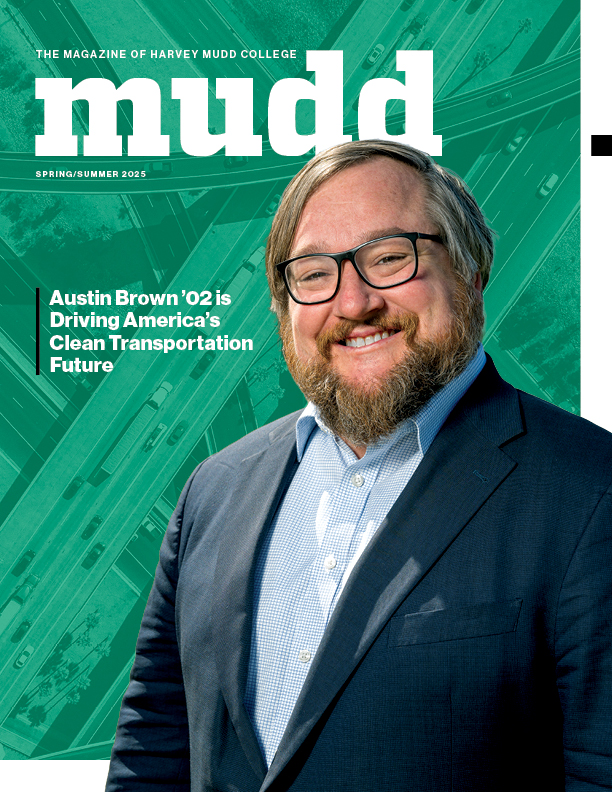Eritas Yang Receives 2024 LeRoy Apker Award from American Physical Society
October 15, 2024
Eritas Yang ’24, a physics graduate of Harvey Mudd College who is now a first-year PhD student in astrophysics at Princeton University, has been awarded the American Physical Society’s 2024 LeRoy Apker Award. This prestigious recognition for outstanding achievements in physics is the highest honor for undergraduate physicists in the United States.
Yang was honored for her research on the long-term “secular” dynamics of planetary systems, specifically her work in developing a perturbative model for the orbital evolution of coplanar three-planet systems. Her research sheds new light on the mechanisms driving instabilities in planetary systems—a critical step toward understanding the chaotic processes that shape the final orbits of planets. The citation on Yang’s award reads: “For developing a perturbative model for the long-term secular dynamics of coplanar three-planet systems, elucidating the physics of such systems.”
Groundbreaking Research on Planetary Instabilities
Yang’s research focuses on understanding the final, violent phase of planet formation, where collisions and gravitational scatterings play a major role. “This destabilization process is not completely understood, yet it is crucial in connecting planet formation models to current observations,” said Yang. Working with Harvey Mudd physics professor Daniel Tamayo, Yang developed an analytical model for the long-term orbital dynamics of three-planet systems, which provides physical insight into the parameters that determine if a system becomes unstable. She also derived a mathematical expression for the boundary at which these systems transition from stable to unstable, validating her model against numerical simulations. This research was published in the Astrophysical Journal and presented at the American Astronomical Society’s Division on Dynamical Astronomy conference.
Tamayo, who advised Yang during her research, highlighted the significance of her work. “At the turn of the 19th century, Poincaré made the surprising discovery that small gravitational tugs between planets in the same system could eventually drive them onto crossing orbits and cause collisions. Eritas’s work extends this understanding by providing a mathematical model that helps disentangle competing mechanisms driving these instabilities,” said Tamayo. “It is remarkable that an undergraduate new to the field could bring fresh insight into such an old problem. This is the kind of result that opens doors to many new research directions.”
A Promising Future in Astrophysics
Yang’s accomplishments as an undergraduate also earned her the Harvey Mudd physics department’s Thomas B. Brown Award for outstanding senior research, as well as the Mindlin Prize for the most innovative paper in the sciences. Her work has already spawned new research in Tamayo’s group, and her analytical model is being applied to study orbital configurations in planetary systems both within and beyond our solar system.
Yang began her PhD studies in astrophysics at Princeton University this fall, where she continues her research on planetary dynamics. She joins fellow alumni Calvin Leung ’17, Stephanie Moyerman ’06, Nathaniel Stern ’03 and Gwen (Bell) Porter ’98 as a LeRoy Apker Award winner.
